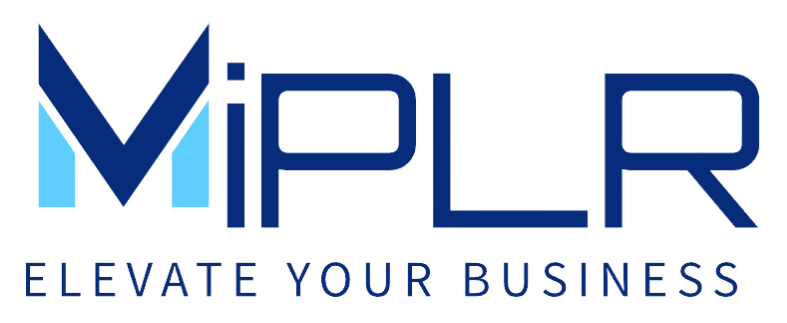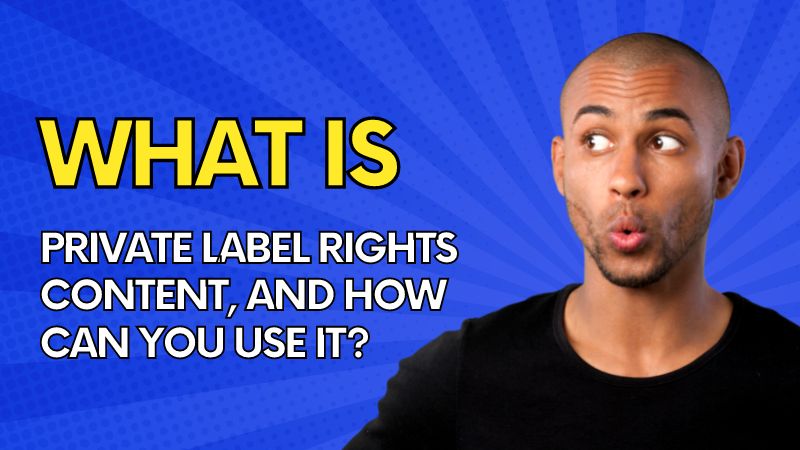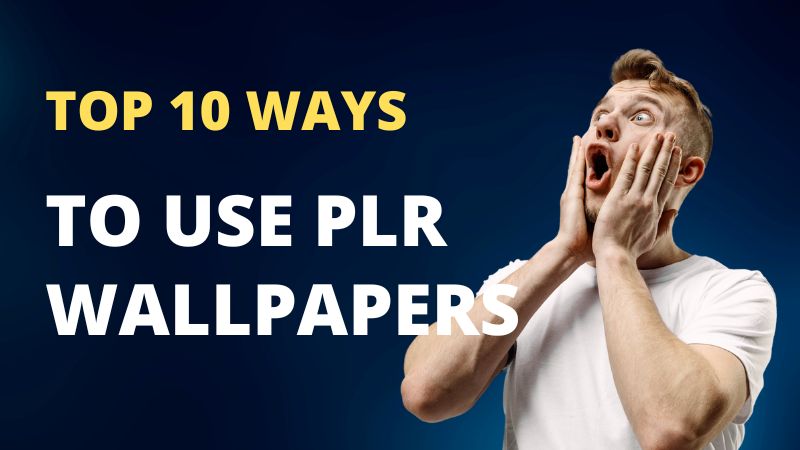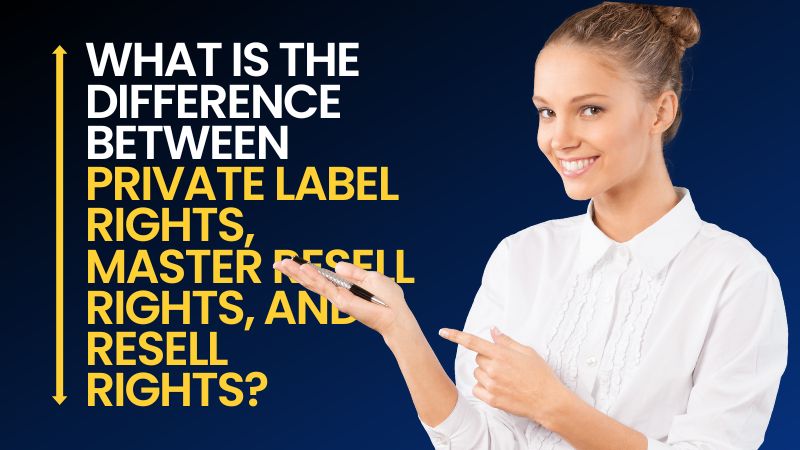Are you a business owner struggling to keep up with content demands? If so, you may look for an easier and faster way to get content. Look no further – private label rights (PLR) content can help you meet your content needs quickly and easily! In this blog, we’ll discuss what PLR is, how it works, and how you can make the most of this powerful tool. So let’s get started!
Introduction to Private Label Rights Content
Private label rights (PLR) content is a licensed form of written, audio or video materials available to individuals and companies. These materials are typically written by experienced authors, journalists, bloggers or content creators and made available for resale on web portals such as Fiverr or Freelancer. When you purchase PLR, you effectively “own” the rights to those materials; enabling you to repurpose them in almost any way imaginable!
You can use PLR material to create unique articles on topics related to your business or industry. These original pieces can be used in blog posts or website copy, or they can be altered and repurposed into special reports and eBooks. You can also create audio/video demonstrations on how to use a service/product supplied by your company, with quotes from the associated PLR material interjected for extra emphasis. This type of incentive material works great for audience engagement!
By understanding what PLR is and how it can be used within your business strategy, you will have access to high-quality digital content at a fraction of the cost that you would traditionally spend when outsourcing content creation services!
Understanding the Benefits of Private Label Rights Content
Private label rights content (PLR) is a type of online content that has been written, designed, or developed by one creator that can then be legally licensed for use by another person/organization. This type of content allows anyone—from the sole proprietor to the corporate bigwig—to look and feel like an expert in their field, without actually having to do the work.
PLR content may come in various forms, including ebooks, videos, software packages, blog posts, articles and templates. What makes private label rights different from most other content licenses is that it grants a broad spectrum of usage rights depending on which license you choose and where you purchase it from. Depending on which license is chosen, private label rights grants full copyright ownership as well as the exclusive right to rebrand and reproduce the products with custom edits and logos. If you purchase or develop private label material with this intention in mind, they can be extremely useful.
The up-front investment required when utilizing PLRs can potentially save large amounts of money over the long run compared to hiring experts or plain old outsourcing your needs. In addition to being cost-effective in terms of money saved versus time spent creating custom work from scratch, PLRs also allow you more control over how content is created for your business or professional project. With private label rights content you have complete control over who writes what goes where and all aspects of design quality assurance as well as editing –– all from one source!
Different Types of Private Label Rights Content
Private label rights content is an attractive business opportunity for entrepreneurs and digital marketers. It’s a type of content or product that has been created by an original creator, who then grants the license to other users for them to use it in different ways. The people who hold this license are known as “private labelers”.
There are many different types of private label rights content. Here are some of the most popular ones:
- Ebooks: Digital books written on any given topic that have been granted private label rights. These are often sold with exclusive access to the created book cover design as well.
- Articles: These can be bought in bulk and modified/rewritten/sold by private labelers.
- Videos: Pre-made videos that can be used in different marketing campaigns and websites, with some resources offering exclusive access to video royalty background music, voiceovers and other extras.
- Software & Apps: Fully functional computer programs such as web applications, games or web tools, offering users interactive experiences on the web.
- Graphics & Images: Photographs and other visual resources that can easily be used in various online projects such as websites, banner ads or email campaigns.
- Templates & Website Themes: These allow users to save time when creating their own website by using existing themes created by another user with private label rights granted to them.
How to Source Private Label Rights Content
Private Label Rights (abbreviated to ‘PLR’) content allows the user to buy pre-written non-exclusive content that can then be tweaked and customized to use as their own branded product. Commonly known as ‘whitelabel’, PLR products are ideal for marketers who don’t have the time, money or skills to create a product of their own but want an income stream.
When you purchase a PLR license of a product, you don’t just get the main product itself. You usually receive a range of additional materials as well such as; reports, articles, ebooks, software/scripts and graphics. These extra items give you plenty of options for how best to repurpose the content that you’ve purchased. This can include combining them into an extended package or formatting them in different ways such as turning an ebook into individual blog posts or videos.
There are numerous websites available offering access to private label rights content and it is important to consider both quality and price when assessing which option is right for your needs. Quality PLR products should include useful topics carefully researched by professionals with all-encompassing text covering all aspects associated with it. It should also provide helpful materials such as sample titles, review article templates and instructional material on how to make maximum use of the product while keeping within copyright laws.
MiPLR is one of the best solutions for quality PLR content at a nominal cost. You can take a monthly plan or get a Lifetime subscription which will let you access unlimited future content.
How to Edit Private Label Rights Content
Editing private label rights (PLR) content can be integral to maximizing the use of it for your own projects. While some PLR content is created with quality and expertise, some may require extensive editing for it to meet your specific needs and be ready for your marketing campaigns. Keep in mind that there are certain protocols, such as attributing the author and acknowledging any licensors, that must be followed when editing and republishing PLR content.
An important step in the process of editing your private label rights content is to read through it thoroughly so that you understand what it entails and what improvements need to be made. It’s wise to make certain edits immediately, such as swapping out stock images or considering alternative size fonts, but more major rewrites can come later.
It’s also important to understand the copyright laws related to using PLR content before making edits. Copyrights protect creators’ rights over their original works, so if you are making changes without proper authorization or attribution, you could initiate a legal dispute by infringing upon the creator’s work. You should check with the licensor periodically in order to ensure any new edits fit within their regulations as well.
Once you have an understanding of copyright law and how to utilize it as part of an effective editing plan for PLR content, there are several methods for improving upon existing material:
- Reword existing sentences or sections
- Remove unnecessary points
- Add extra depth where needed
- Organize info into a cohesive structure
- Include helpful resources where applicable
By properly editing private label rights content before republishing or reselling it on either digital marketplaces or websites that you own, many companies have been able to effectively monetize existing works while maintaining respect towards intellectual property laws.
How to Use Private Label Rights Content
Private label rights content, or PLR content, is a type of digital asset that gives you the rights to modify and use the content as you wish. Many digital marketers, bloggers, and business owners purchase PLR materials in order to save time and money on creating their own content. But it’s important to understand how to use private label rights content so that you can get the most out of it.
When you buy PLR materials, it typically comes with a license that dictates how you are allowed to modify and share the digital asset. Some licenses require attribution to the original author when publishing or reselling the material whereas others permit full ownership and require no credit. It is important to read through the license carefully before using a PLR piece in any way.
You can use private label rights content for your personal blog or website by converting it into fresh blog posts or articles. You can also use this type of material for promotional purposes by creating infographics, social media images, presentations, e-books, reports and other forms of content marketing.
Once you’ve read through the license agreement for any purchased PLR piece, create an outline for how you want to tweak the material so that it reflects your brand’s unique perspective. This includes adding graphics and videos as well as rewriting sections from scratch if necessary — just remember not to change things enough that they become unrecognizable from the original asset! Remember also that hiring a copywriter or editor may be necessary if your budget allows it in order to update out-of-date information or make sure all facts are accurate before repurposing them into something new. Once complete, post your creation on various channels including your own site as well as relevant third party providing platforms such as Medium or LinkedIn Pulse (if permissible).
Legal Considerations When Using Private Label Rights Content
When you are thinking of using private label rights content, several legal considerations must be taken into account. Many people incorrectly assume that they can use PLR content without any restrictions but there are a number of legal and ethical issues to consider before using this type of content.
First, you must make sure to read and understand the license for the PLR content you purchase and follow the guidelines set forth in it. This will ensure that any use of the content does not violate copyright laws or other intellectual property laws. It is also important to pay attention to who owns the rights to the content — many PLR owners allow their products to be resold or used in multiple formats without permission from them, while others may require permission for any use of their work.
In addition, it is important to consider potential liabilities if you decide to include PLR on your website or in any other materials produced by your business. If sensitive information is shared in an article, video or podcast created with private label rights material, then you could find yourself open to potential lawsuits if viewers feel they have been misled or taken advantage of. It is essential that you research each piece of content carefully before deciding whether or not it should be included in your business’s materials.
Finally, ethical considerations should also be taken when using private label rights content. Quality should always be a primary concern and reusing outdated information could hurt your reputation and damage relationships with customers as well as create unnecessary legal risk for your business. If a piece does not meet high standards for accuracy and relevance, then it should not be used regardless of ease of acquisition from a PLR source.
Conclusion
At this point, you should have a much better understanding of what private label rights content is and how it can be used to benefit your business. It can help you to save time and money as you build your website or launch your new product. It also allows you to customize great content and build upon the understandings of someone else’s research quickly and easily.
When searching for private label rights content, just make sure that you understand what kind of restrictions are in place with the license that comes with the product (if applicable). You may also want to make sure that any PLR products you purchase do not contain any illegal or unethical content. Finally, check out online communities for resources for finding quality PLR products. By taking the time to search for quality content with PLR licenses attached, chances are high that you will find premium-level content for your website or product launch.



